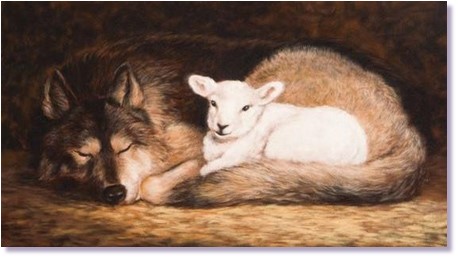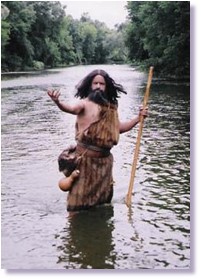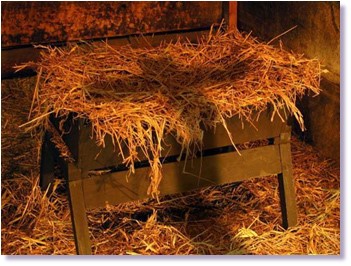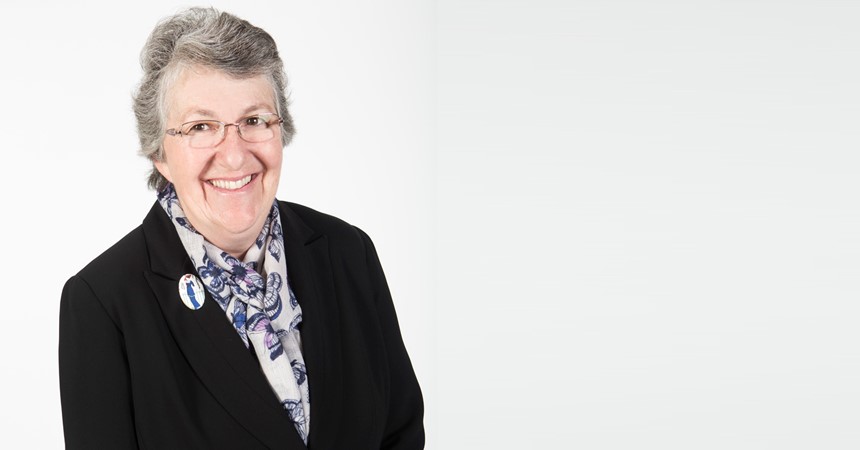I hope they are being sung this week during your daily prayer, serving as a reminder as to what preparing for Christmas is about, amid the busyness of the end of year ‘stuff’. We are reminded about the shoot that will come from the line of Jesse (David’s father). The message from the weekend readings is about justice, equity, fairness, righteousness and faithfulness. Jesus’ coming, the coming of the Messiah, will bring about a new era of relationships; it will be a peaceful Kingdom. I like the words written by Deacon Ross Beaudoin, found in his reflection in the bulletin of the Catholic Parish of Inner Newcastle:
We must determine to welcome not only the Christ Child in Bethlehem this Christmas, but accept his baptism and fire-Spirit that will continue to change the world through us.
These are the words of Isaiah (11:1-10) to which I refer:
A shoot shall come out from the stump of Jesse,
and a branch shall grow out of his roots.
The spirit of the Lord shall rest on him,
the spirit of wisdom and understanding,
the spirit of counsel and might,
the spirit of knowledge and the fear of the Lord.
His delight shall be in the fear of the Lord.
He shall not judge by what his eyes see,
or decide by what his ears hear;
but with righteousness he shall judge the poor,
and decide with equity for the meek of the earth;
he shall strike the earth with the rod of his mouth,
and with the breath of his lips he shall kill the wicked.
Righteousness shall be the belt around his waist,
and faithfulness the belt around his loins.

The wolf shall live with the lamb,
the leopard shall lie down with the kid,
the calf and the lion and the fatling together,
and a little child shall lead them.
The cow and the bear shall graze,
their young shall lie down together;
and the lion shall eat straw like the ox.
The nursing child shall play over the hole of the asp,
and the weaned child shall put its hand on the adder’s den.
They will not hurt or destroy
on all my holy mountain;
for the earth will be full of the knowledge of the Lord
as the waters cover the sea.
 Imagine a world like this. No more violence, no more competition or power plays but a world of peace and harmony. This is indeed the message of John the Baptist, who heralded the one to come after him. And yet, it seems to be so frustratingly unattainable.
Imagine a world like this. No more violence, no more competition or power plays but a world of peace and harmony. This is indeed the message of John the Baptist, who heralded the one to come after him. And yet, it seems to be so frustratingly unattainable.
As you know, I frequently read the Daily Meditations of Richard Rohr. Last week his reflections focused on Everything Belongs. Part of his reflections were on the function of religion. He spoke of this in conjunction with what he calls the first half of life and the second half of life. The first part is about being loved and having a place where we belong without needing to prove ourselves. The second part is about loving, and that everything belongs.
I share with you the Daily Meditation of Monday 28th November:
Ken Wilber sees religion as having two primary functions. The first is to create “meaning for the separate self.” The second and mature function of religion is to help individuals transcend that very self. Great religion seeks full awareness and expanded consciousness (often called “holiness”) so that we can, in fact, both give and receive in equal measure. For me, this is the simplest sign of emotional and spiritual health. Things can be both received and also let go of—exactly as it is between the three persons of the Trinity. Remember, I believe the Trinity sets the pattern for all creation and all growth into Love. Trinity is the ultimate code breaker!
Although the majority of religions and individuals remain at the first stage of creating meaning for the separate self, I continue to find people inside every religion and profession who are on the true further journey. These are the ones who have “died before they die,” who have let great love, suffering, or prayer lead them beyond their small self into the Big Self. They have let go of who they thought they were, or needed to be, to discover who they always were in God.
The second function and goal of religion, Wilber says, “does not fortify the separate self, but utterly shatters it.” Mature spirituality offers “not consolation but devastation, not entrenchment but emptiness, not complacency but explosion, not comfort but revolution.” Rather than bolster our habitual patterns of thinking, it radically transforms our consciousness and gives us what Paul calls “the mind of Christ” (1 Corinthians 2:16).
The mind of Christ is not binary, either/or thinking. The mind of Christ can live with paradox, uncertainty, and mystery. This way of not knowing, and not even needing to know, is precisely what we mean by Biblical faith. In the first half of our lives (not strictly chronological!), we are largely not ready to understand what faith is, because we still cling to naïve beliefs and false certainties. We need them to get us started! In the first half of life we are still afraid of darkness and “the cross.”
In time, through trials, suffering, and prayer, we will allow ourselves to be broken open to the Larger Knowing that can hold everything in love, grace, and freedom. Only at that point do we move from mere religion to the beginnings of a spiritual journey that will help us and the world.
In Wednesday’s writings he goes onto say:
I believe that we have no real access to who we fully are except in God. Only when we rest in God can we find the safety, the spaciousness, and the scary freedom to be who we are, all that we are, and much more than we think we are. Only when we live and see through God’s eyes can “everything belong.”
 So as we approach the empty crib with our families, I hope we are able to share the great joy of the babe in the crib who came so that we might fully realise who we are and the love, grace and freedom that this brings.
So as we approach the empty crib with our families, I hope we are able to share the great joy of the babe in the crib who came so that we might fully realise who we are and the love, grace and freedom that this brings.
A good portion of my last week has been with young people, either as they completed their Pastoral Placement Program, at the Praise and Worship Night, at the Diocesan Council for Ministry with Young People (DCMYP) Council meeting and at the Young People’s Sunday Mass at the Cathedral. I am pleased to be with young people and those who support them, as they seek a place in which to belong, to express themselves and their beliefs and to journey with fellow pilgrims who are also seeking and desiring a relationship with God. Communal prayer, song and sharing forms part of their expression of faith which is contrary to our post-modernistic times in which people are not sure where we come from, who we are, and where we are going; and most no longer seem to care about such questions.
The DCMYP, made up of volunteers, arrange a number of key events for those who seek to engage with some deeper reality – Praise and Worship, Pints with Purpose, Seven @ Sacred Heart, Be Grow Show Retreat, Australian Catholic Youth Festival, World Youth Day and other opportunities as they arise. They feel let-down when attendances, inviting anyone from all age-groups, are low at functions, which are well organised. These, mostly young, people are trying to respond to the Spirit calling them to provide faith opportunities in this post-modern society in which people struggle to find meaning and purpose. They have a strong desire to make a difference.
The words of the chorus from the hymn Remembrance by Matt Maher struck a chord with me, as it was sung on Sunday night:
By Your mercy, we come to Your table
By Your grace, You are making us faithful
Lord, we remember You
And remembrance leads us to worship
And as we worship You
Our worship leads to communion
We respond to Your invitation, we remember You
We gather to tell the story and to remember, to belong, to be loved so that we can be fed and nourished, so as to see God and to give that love to those we encounter. There are a multitude of opportunities that invite others into new ideas, new ways of seeing and new ways of understanding. I ask that you spread the word about these opportunities.
In this second week of Advent, take time to breathe.

